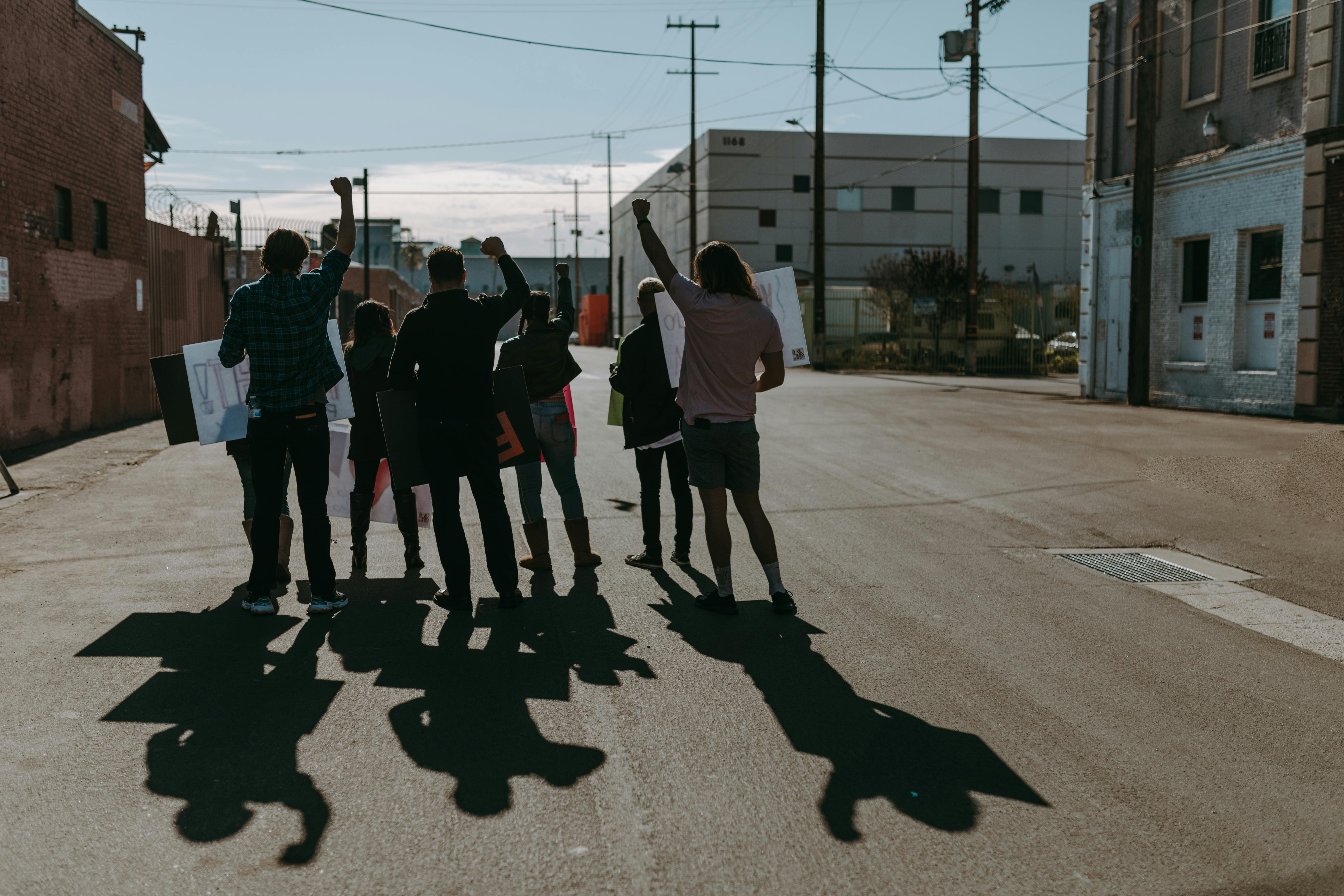It’s 4:00 am and you’re fast asleep. Strong knocks on the door of your house make you try to wake up quickly. Go see who’s there. Two very serious-looking men, dressed in shirts and ties, show their badges through the peephole in the door. They are the police. Adrenaline rushes through your circulatory system, but you open the door and ask them what’s wrong. They say that they are investigating a crime in the neighborhood and ask you to go to the police station to tell them what you may know about the crime.
You think, “Aren’t they supposed to read me my rights? I’ve seen it dozens of times on TV.” You do not know what to do. You don’t want to be rude. They are the authorities. You guess that you must comply with his request. So you ask if you can get dressed first. Then, hoping to make it easy for you, you give up your rights and do what they tell you to do.
The first thing to understand is that the law does not always require the police to give you your rights when they want you to talk to them. In Miranda v. Arizona, 384 US 436, 86 S.Ct. 1602, 16 L.Ed.2d 694 (1966), the U.S. Supreme Court decided the landmark case on when and under what circumstances the U.S. Constitution requires police to report a suspect to the the right to remain silent and the right to consult with an attorney before answering questions from the police.
The police are not always required to read you your rights under Miranda decision. When the police arrive at a crime scene and make an arrest but don’t want to talk to the person, they won’t read you your rights. If the police stop you on the street and start questioning you and you volunteer to answer, this is called a consensual encounter. They don’t need to read your Miranda Rights. If they ask you to voluntarily go to the station and talk to them, even if it is recorded, they do not need to give you your rights first under Miranda.
Does it sound strange to you? Well here is the two minute summary Miranda. Basically, the Miranda The decision requires that every time there is a custody questioning, police must first inform the person of their 5th Amendment rights to silence and counsel. If they fail to read and obtain a valid waiver of those rights, the statement will be suppressed by the trial court. That statement or confession will not be admitted as evidence at trial.
- Is the person in custody?
First, the court will determine if you were in custody. That depends on a number of factors. Did the police tell you that she is under arrest? Was he handcuffed and placed in the police vehicle? Were you free to go or leave? If you were taken to the station, did you drive there freely and voluntarily? If he was speaking voluntarily, was he free to get up and leave at any time? Did the police questions focus on you as their only suspect? The answers to these and similar questions can be used to determine if you were in custody for the purpose of
Miranda. However, a suspect could clearly be in custody, but the police make no attempt to question him when he speaks up and begins to confess to the crime. This is the next query under
Miranda.
- Is the person being questioned?
Second, the court must determine whether the police were questioning him. The word “interrogate” simply means “to question.” Do the police question the suspect while he is in custody? Personal background issues, of course. [i.e. name, address, date of birth, etc.] can be asked and answered without the need for
Miranda warnings But any questions that relate to the facts or details of the crime and the surrounding circumstances cannot be asked or answered until you are advised of your constitutional rights by the police.
Now, with this basic manual in mind, let’s take a look again at the main topic of this article: “Come to the police station and talk to us”. how can you say no Miranda warnings are required. The police are asking you to come voluntarily. You could say, “No. I will not go or leave my property.” You could go in and go back to bed. However, if you decide to go with them voluntarily, everything you say will be used as the basis for charging you with a crime and arresting you on the spot.
Look at it this way, you’re not in custody. He has not been charged with any crime. Police have no probable cause to arrest him. They’re looking for something to hang their hat on to arrest you. They expect you to come to their station where they are in control and will make you talk. If the government has the entire burden of proving a case against you beyond a reasonable doubt, then it must do so with evidence. [real evidence and testimony] other than his own words alone. If she chooses to speak, she does so at her own risk. You have constitutional rights. You must affirm them or lose them.
- Remember this: Never, ever talk to the police without a lawyer!
So when they come calling and try to shake you off, just say, “No thanks!” Don’t go with them. Do not agree to leave your home and go to the police unless and until you are arrested. Always ask for a lawyer. Be loud and clear. Keep demanding to speak to a lawyer until you get one. Never give a voluntary statement to the police without requiring your attorney to be present first.
